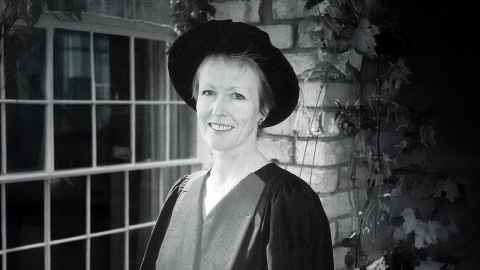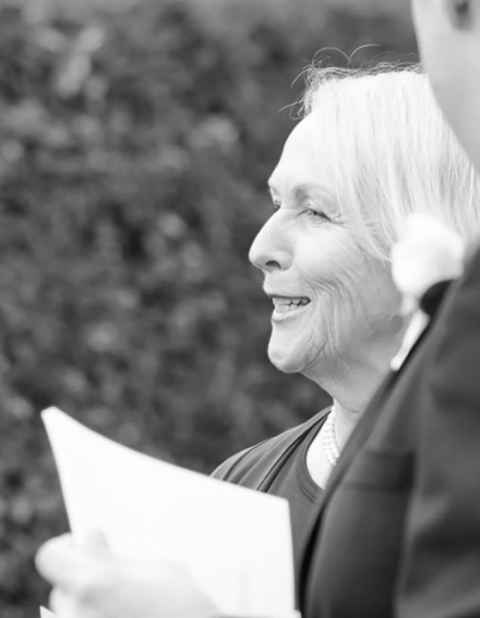Vivienne Gray: in memoriam
21 July 2025
Internationally renowned scholar Vivienne Gray, an Emeritus Professor of Classics, is farewelled by a colleague and several former students at the University of Auckland.

A student from an American university, taking courses at Auckland, was surprised that she would be hearing lectures from Vivienne Gray, saying, “But she’s a world leader.”
Vivienne was indeed recognised internationally for her investigations of the many and very various works of Xenophon (c.430-354BCE), much respected in the Graeco-Roman world and then in Europe from the Renaissance, as historian, philosopher, and exemplary writer of limpid Greek prose.
That respect diminished among professionals from later in the nineteenth century until almost the end of the twentieth (partly, if irrationally, because he was not Thucydides or Plato); Vivienne was one of those most influential in restoring him, in her lifetime, to serious study.
She was interested in the extraordinary range of his experimentation in the prose genres he and his contemporaries were defining; in which she pursued especially his master idea of leadership, and the literary techniques by which he presented the idea within and across genres.
She published four monographs, The Character of Xenophon’s Hellenica (Duckworth, 1989), The Framing of Socrates ... Xenophon’s Memorabilia (Steiner, 1998), Xenophon on Government (CUP, 2007), and finally Xenophon’s Mirror of Princes (OUP, 2011; welcomed as “magisterial”, “magnificent … a major contribution”).
She edited and introduced Oxford Readings … Xenophon ( OUP, 2010); and herself wrote numerous articles for journals, contributions for collections, and reviews on Xenophon and much else, but with most pleasure on Herodotus (“Herodotus was a genius”)."
Vivienne came to the University of Auckland in 1965 from Onehunga High School, with national distinction already in French, and a love of the poetry of Gerard Manley Hopkins she never lost. But she had also had Latin there from an enthusiastic new teacher, and continued with that, and began Greek; she took her MA in Latin in 1969.

Departing for New Hall, Cambridge, she took the PhD degree at Cambridge in 1973. She returned to a lectureship at Auckland in 1974, which Professor Pat Lacey encouraged her to interrupt for a Rhodes Visiting Fellowship at Lady Margaret Hall, Oxford, in 1979 and 1980.
Back in Auckland again, in 1987 Vivienne was appointed Professor of Classics and Head of Department, the second woman to be appointed Professor of Classics in New Zealand, after the unique Agathe Thornton at Otago, whom she admired and liked.
Vivienne taught much Greek history, and enjoyed the areas in which she could bring her research to bear (Greece and Persia, the “Tyrants”, Sparta), but she enjoyed best the small classes of highly motivated students who worked hard to understand the Greek texts of the lyric poets, Herodotus, Thucydides, and indeed Xenophon, or the Latin of Lucretius (a favourite poet).
She insisted, “Read the Greek [or the Latin]”; those who didn’t, she said, might be talking “two inches [or feet] above the text”. In her classes, as a former student put it, she “challenged, inspired, and encouraged … teachers who manage to do all three of these things well are rare”.
She was an inspiration also more generally for a number of women students; even if she herself never suggested that was a particular purpose. For research she encouraged students to go overseas, if they could, for new and more various stimulation, and they took higher degrees at Cambridge, Oxford, and Princeton, and themselves continued in research and teaching with much distinction.
She also supervised research in Auckland, offering the same inspiration and encouragement, and, for at least one student, “an overview of what our cats had done of late”.
In her classes, as a former student put it, she “challenged, inspired, and encouraged … teachers who manage to do all three of these things well are rare”.
But the texts were not everything: vacations from Cambridge had given her an awareness of Greek topography that prompted fresh thoughts about Greek history, even during a visit to the Cyclades last August, and with that, a love of Greece altogether: land, sea, and sky.
In the University at large, a Dean of Arts once described Vivienne as a useful person to have on a committee, and she served on several (Appointments, PBRF, and at least one Building), of enough importance for her to say nothing at all about what they did. More colourfully, she served as Public Orator, in succession to Professor Nicholas Tarling; she enjoyed hearing him call her, in approval, "Oratrix".
In 1998 Vivienne was diagnosed with leukaemia; she responded with what a former student recalls as “the utmost dignity and steely resolve”. There was no getting rid of her illness; but through ups and downs, she achieved another twenty-seven years.
Media contact
Julianne Evans | Media adviser
M: 027 562 5868
E: julianne.evans@auckland.ac.nz